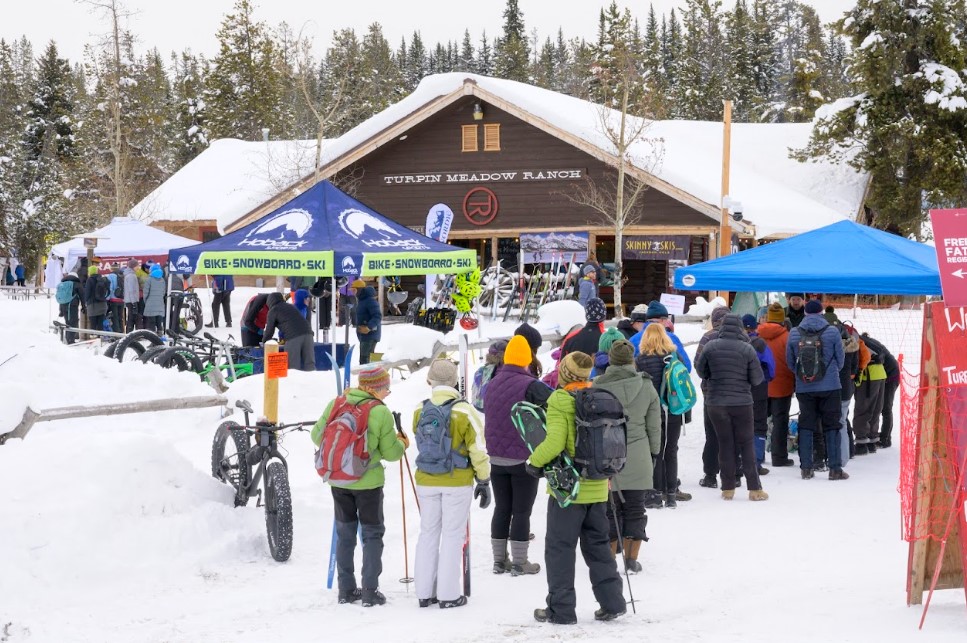Though Scott Lacy grew up in a family full of alpine skiers, he was drawn to the Nordic community. He found that Nordic skiing was a different type of work than alpine skiing–one that required more long-term goal setting and achievement. In 5th grade, Scott won his first race.
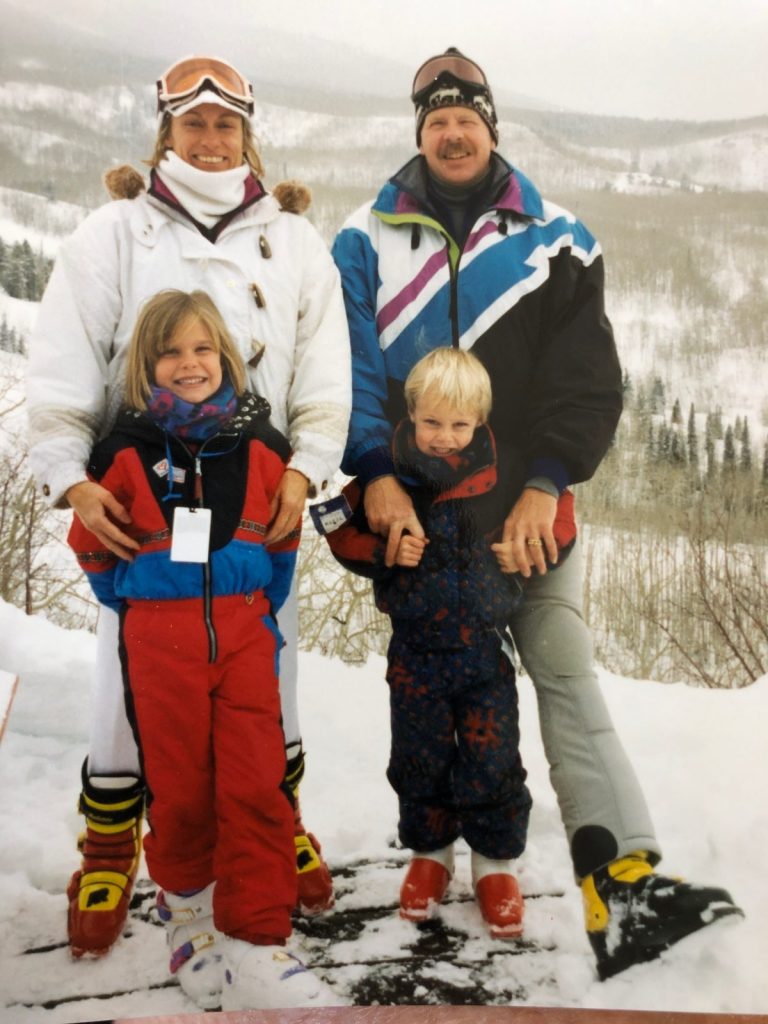
“[It] was probably just driven by a sugar high from hot chocolate,” he said, laughing. “But I had a great season, and I was [only] 11 years old.”
Scott continued to excel in Nordic skiing. He was motivated by his coaches and the older athletes that went on to the Olympics with the US Ski Team. These athletes paved the way for Scott and showed him paths to follow Nordic skiing further in life. He also observed how the people in the Nordic community were invested in being well-rounded people–they wanted to be good skiers, good students, and good people too.
Scott’s early Nordic career was extremely successful. In middle school, he raced at junior nationals, and in high school, he skied in Europe for the US Ski Team’s Development team.
Then came the decision of whether to continue to pursue Nordic with the US Ski Team or go to college. Even though Scott was offered a spot to go to Park City and race full time, he felt that he was more motivated to go to college.
“I had a blast racing NCAA,” he said. “I had to say goodbye to the US [Ski Team] side of things for a little bit, but skiing [at Dartmouth] became my family. It became the continuity between all of the different experiences [I had] at college.”
Even though Scott thought he might join an elite team right after graduating from college, he decided to shift his focus away from Nordic. He knew that taking the next step towards skiing meant saying yes to one thing and no to everything else, and he wasn’t ready for that. After spending some time in Seattle and back at Dartmouth, Scott realized that if he wasn’t going to be racing, he needed to fully commit and just have as much fun as he could. This led him to Jackson, Wyoming.
Ski Coaching at JH Ski Club Nordic Program
Scott reached out to the Jackson Hole Ski & Snowboard Club (JHSC) to help with their younger Nordic teams. Though he never had much interest in coaching, he wanted to reconnect with the Nordic community.
“The kids made me love skiing again. I hadn’t touched Nordic skis since college, and I really enjoyed the reconnection to the roots of skiing,” Scott said. “I happened to move up with the same age group of kids, which was really cool because I felt like I was relearning my skiing dream, seeing them succeed and go from middle-school skiers to getting top 10’s at nationals.”
Scott ended up growing the JHSC Nordic program, taking 11 kids to junior nationals his last year. Some of his fondest skiing memories are the adventures with the kids he coached.
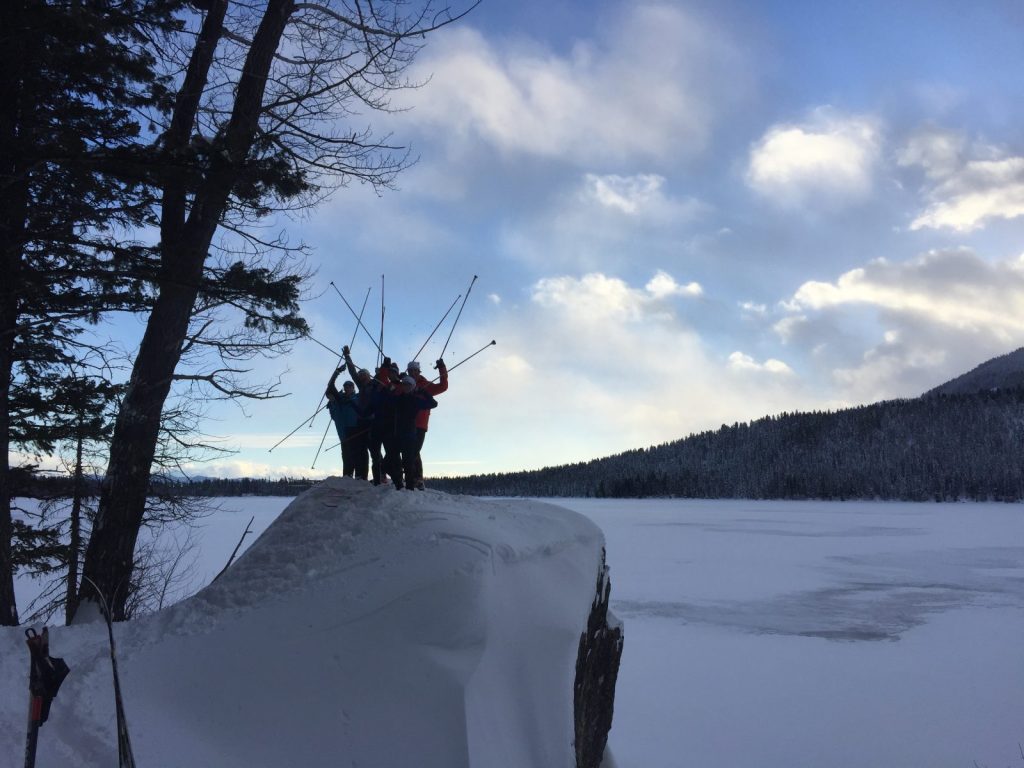
“I [loved] breaking up the training routine with the kids. The Tetons are amazing [for that],” he said. “[The] kids are so fit and have such good motivation, so it doesn’t matter if you’re trudging through snow–the kids love doing it. My goal with them was to make them love what they were doing and not care about the results.”
Rediscovering Nordic Ski Racing
Then at junior nationals in Alaska, he realized he wasn’t done racing.
“The kids knew that [I wasn’t done too]. When I was skiing around and working on the racecourse with them, they would say ‘you need to race–you want this way more than anyone I’ve ever met,’” he said. “As much as I loved coaching, I knew that [I would leave eventually], and of all the goals I had in life, skiing was the time-sensitive one, so I decided to [pursue] it.”
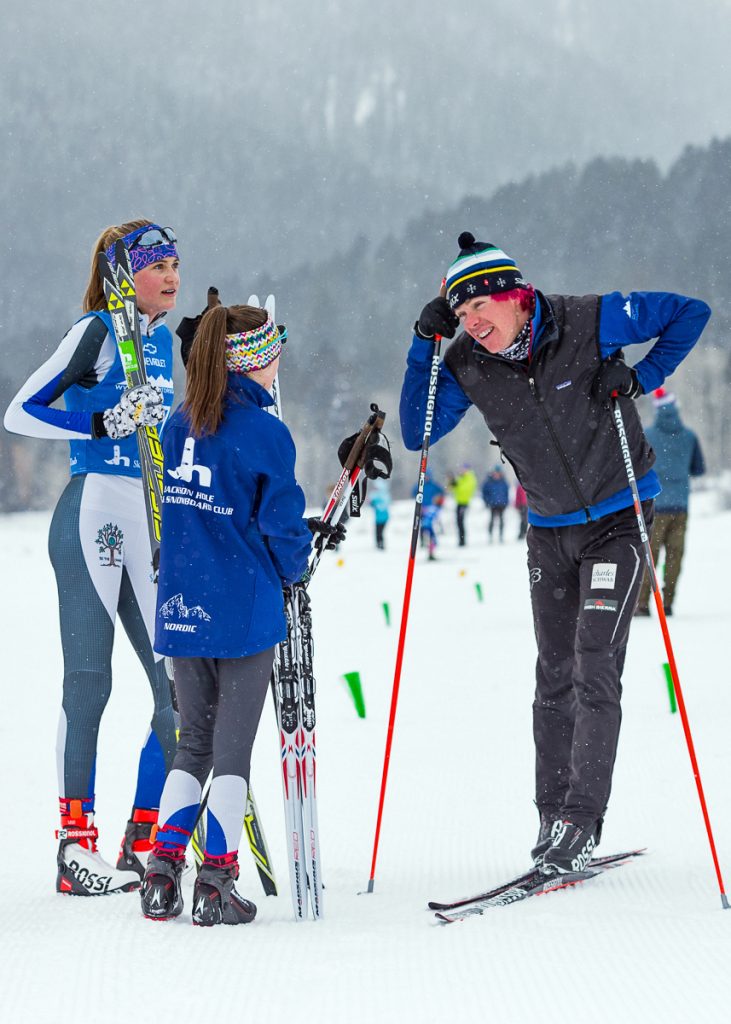
Scott felt that his time in Jackson allowed him to energize his mindset and prepare to dedicate himself–100% of his mental and physical energy–to whatever was next. That philosophy has been essential for Scott in his journey back into racing, especially since he ended up being an independent racer his first year. He struggled because most teams prefer younger skiers who are just out of college.
After a solid summer of training back home in Aspen, the racing season brought new challenges with independent funding, so Scott ended up “hodge-podging” support together.
“It forced me to be creative and extroverted and really reach out to [a lot of different] people,” he said. “[It felt like I was] a product of the entire [Nordic] community.”
Though last year was exhausting, Scott pushed himself to his physical limits and found success, ending up in some national top 20’s and turning some heads, especially for a 29-year-old.
“Last year gave me so many opportunities to quit that in the end, I realized how deeply I wanted to do this,” he said. “I didn’t quit, and the more micro-steps in the sand towards success that I had, the more it gave me a taste of what I knew I was working towards.”
In terms of getting results, Scott found that just about everything was stacked against him.
“It’s like the whole system is designed so that you have to be the best to get to be the best,” he said. “I didn’t realize how much that was compounding [on my ability to succeed]. Because I had no [prior results], no one knew how fit I was, no one was going to take me seriously, and I couldn’t even race in the good races. And until I could get into the good races, I couldn’t even get the results to get there in the first place.”
Throughout the process of building himself as a business and a competitive racer, Scott has witnessed how restrictive and inaccessible the Nordic ski racing world can be.
“I personally would love to prove to the world that you don’t need to go [into professional racing] straight out of college and that having a love of sport is enough to be a good skier,” he said. “I want to illustrate that there’s a spectrum to being successful. I think there’s a lot of momentum right now to work towards a future of the sport that is more broad-based.”
Scott thinks that the structure of the Nordic racing world is restrictive to its own detriment because it weeds out a lot of great people. This relates to issues of diversity, equity, and inclusion and reaching larger populations of snowsport athletes that have so much to offer.
“For the US Ski Team, unfortunately, their philosophy is medals, medals, medals,” he said. “If they’re only choosing people who are able or passionate enough at 19 or 20 to pursue skiing, they’re only getting a small fraction [of potential athletes and medals]. But [a larger] base of people [can] push the level of competition and opportunity for others that might be great skiers.”
Another huge barrier is money. Scott has found that funding in Nordic skiing is extremely limited outside the US Ski Team.
Balancing Ski Racing, Training and Work
“It’s really hard to train full time and work—you just can’t put in enough training or enough work,” he said. “This goes along with [the question of] how we create a system that allows for flexibility so you can have a really good skier who’s also a student or working a job.”
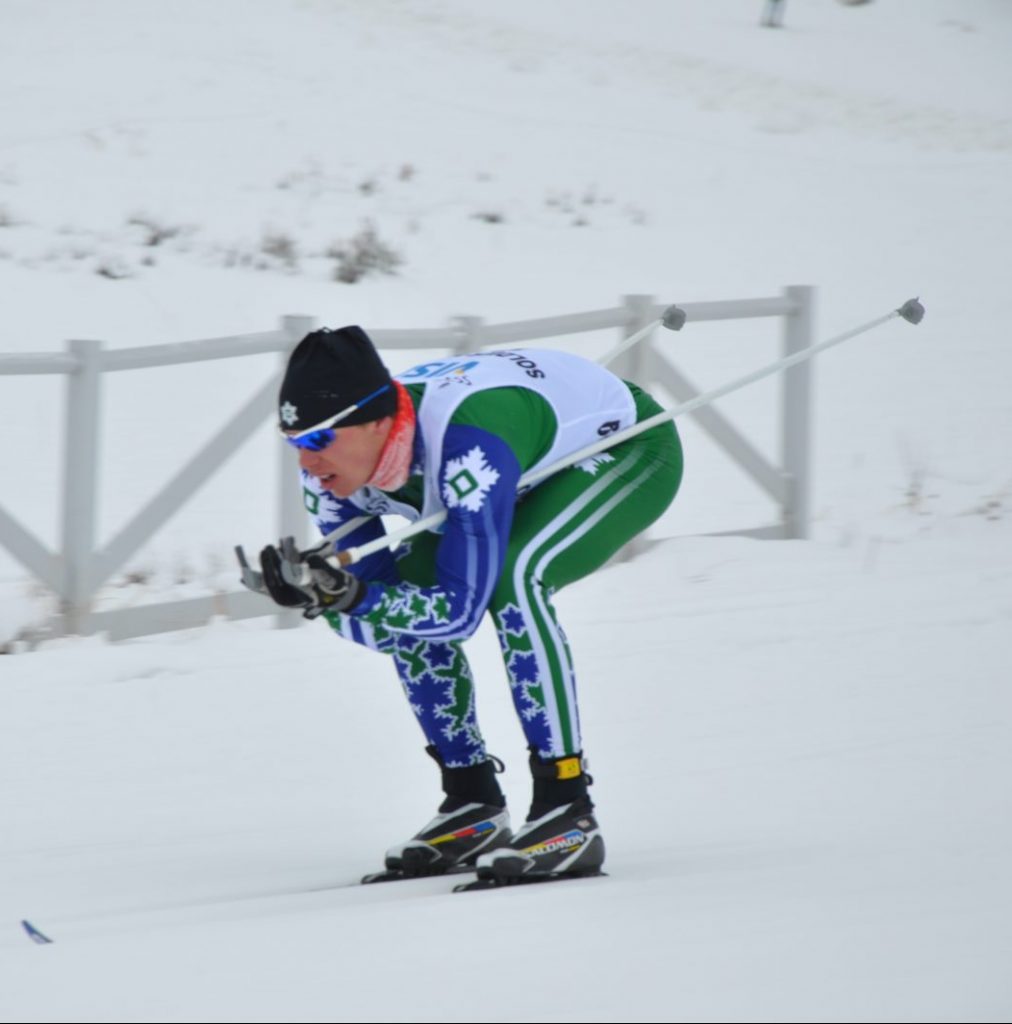
Scott has started to have discussions with people who want to work towards solutions to some of the barriers, specifically building coalitions of colleges that would allow people to pursue a graduate degree while maintaining a rigorous training and competition schedule.
In talking about how a lot of Nordic athletes want to give back to the community, he’s found that a lot of athletes had trouble participating in anything outside of skiing–not just jobs or school.
“Being an elite athlete is very self-centered,” he said. “My day revolves around what is best for me: my recovery, my training, my diet, my funding, it’s all about me. That’s something I personally struggle with and a huge reason I didn’t go into [racing] after college. I didn’t want it to just be about me. I wanted to participate in and give my energy to other things in the world.”
With the recent resurgence of pursuits for social justice, Scott thinks athletes have an opportunity to engage with these issues and hopes that this larger participation in world issues can continue to grow within the sport.
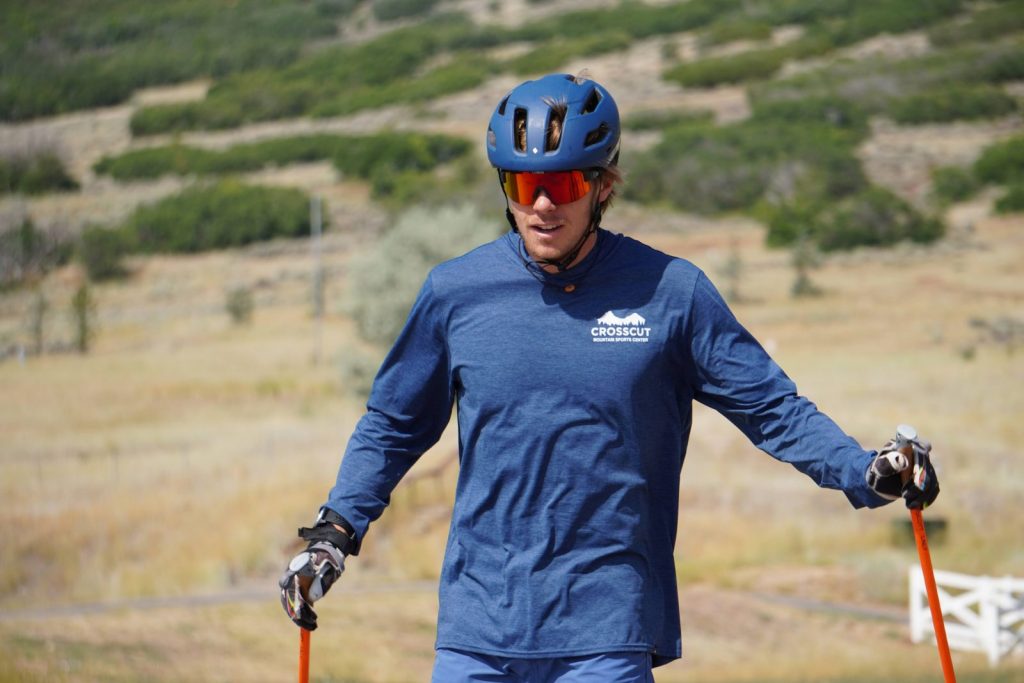
Luckily, Scott has found an elite team with high-level coaches to train with in Bozeman this year. Their life-balance philosophy is helping him maintain a more sustainable training regimen.
Lessons Learned from Nordic Ski Racing
He has spent a lot of time reflecting on his first year back in the racing world and figuring out his lessons learned from independent racing and many other reflections. In being independent, he had to hold himself to a higher standard.
“A lot of what I learned was more lifestyle-based like how to hold myself accountable,” he said. “If I didn’t show up on any given moment in my life without having it dialed, it was all on me; I didn’t have a coach to deal with it [or] a teammate to borrow poles from.”
Scott’s journey in skiing has been unique and inspiring, and he’s learned a lot about the sport and himself–both strengths and areas for improvement. After being asked if there was any advice he wished he would have heard when he was younger, Scott said it was that you need to learn to love the process.
“You have to love doing what you’re doing intrinsically for the sake of doing it,” he said. “That’s where I was lucky, where I realized I stood a chance in what I was doing because I don’t necessarily love racing. In fact, the nerves do really get to me, and on race mornings I’m pretty nervous every single time. But in the end, I love training, I love the community, and I love putting on skis. At the end of the day, a race isn’t a race, it’s just another day of training — you just happen to have a bib on and you happen to be on a course. And the more you work on the process, the better those race days turn out.”
Scott is still working on funding his race season this year, so there is a great opportunity for people in the Jackson Nordic community to support him. He is working with a true grassroots effort, drawing from the strong Nordic community that he has loved since childhood. If you’d like to support Scott or learn more about his story, you can check out his website.


